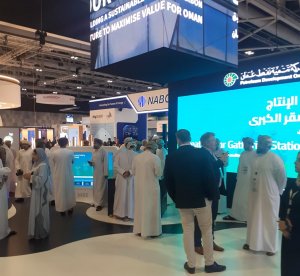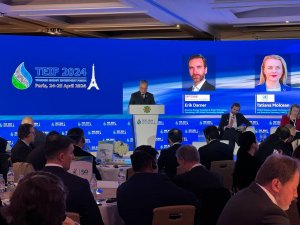The second round of international negotiations on the modernization of the Energy Charter Treaty (ECT), held in the format of videoconferences, is scheduled to be held in September this year. In particular, it is planned to discuss in detail the provisions of the ECT related to the transit of energy resources, as well as the creation of a permanent mechanism for resolving disputes between States, investors and other participants in energy agreements and projects.
As previously reported, the first round of international negotiations on modernization was held in the format of videoconferences by the Energy Charter Secretariat in Brussels (Belgium). The negotiations were attended by representatives of a number of ministries and departments of our country, as well as the State concern "Türkmengaz".
The main topic of the discussions was legal protection of investments in the energy sector. It should be noted that earlier all member States of the Energy Charter Conference submitted their proposals for updating the Treaty to the working Group on the modernization of the ECT.
Strengthening the position of the global economy directly depends on the sustainability of the global energy sector. Having broad access to affordable, reliable, modern energy sources is crucial for the progressive development of all countries and the well-being of their peoples. The efforts of the international community are aimed at achieving this goal of the third Millennium, including in accordance with the UN "development Agenda for the period up to 2030".
President Gurbanguly Berdimuhamedov has repeatedly stated Turkmenistan's position on these issues at sessions of the UN General Assembly and other international forums. The constructive initiatives of the Turkmen leader found full understanding and support of the international community, which was confirmed by the UN Resolutions adopted in 2008 and 2013 "Reliable and stable transit of energy resources and its role in ensuring sustainable development and international cooperation".
Currently, the Energy Charter Treaty is the only multilateral agreement aimed at solving complex political, economic and legal problems related to trade in energy resources and their transit through interstate gas and oil pipelines and power transmission lines. It was signed by more than 50 countries, including Turkmenistan, the United Kingdom, the European Union, Azerbaijan, Kazakhstan, Turkey, Uzbekistan, Japan, and others.
At the same time, there have been significant changes in the world, which have put on the agenda the need to modernize the Treaty developed in the 90s. Issues related to the formation of a new international legal framework for cooperation in the energy sector have been repeatedly discussed at international forums held in our country. These include the international Energy Charter Forum "Towards a Multilateral framework agreement on energy transit" and the 28th session of the International Energy Charter Conference, held in the Turkmen capital three years ago as part of Turkmenistan's chairmanship of this international organization.
“Borderlex” (UK), a news Agency on trade policy in the European Union, recently published an interview with the Secretary General of the Energy Charter, urban Rusnak, which describes how the modernization of the ECT is progressing.
"We have been working on this process since our meeting at the end of 2017 in Ashgabat," Mr. Rusnak said, noting that a list of 25 topics has been compiled that will be discussed during the official talks that began in June this year. The rights and obligations of the parties to the Treaty should be re-evaluated in all areas: transit, investment, energy efficiency, and trade. Moreover, decisions on each issue must be taken unanimously.
Environmental protection is also an important aspect. The new Treaty should take into account that all participants in the Energy Charter have committed themselves to the Paris agreement under the UN framework Convention on climate change, which regulates measures to reduce carbon dioxide in the atmosphere from 2020.
"I expect that in one or two years a new Agreement will be concluded that will better reflect the interests of all interested parties and have a positive impact on the lives of millions of people," said the Secretary General of the Energy Charter.













